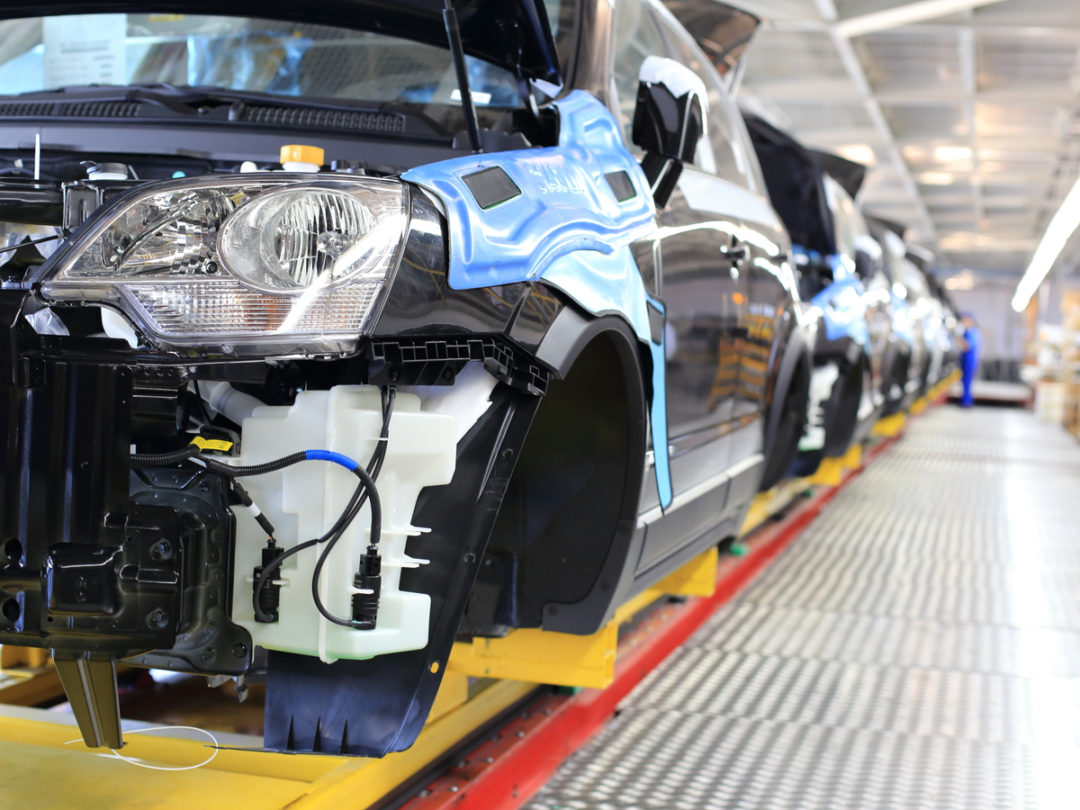
Visit Our Sponsors |
|
|
|
|
|
|
|
|
|
|
|
|
|
|
|
|
|
|
|
|
|
|
|
|
|
|
|
|
|
|
|
|
|
|
|
|
|
|
|
|
|
|
|
|
|
|
|
|
|
|
|
|
|
|
|
|
|
|
|

The latest Brexit delay means more uncertainty, frozen investment and lost customers for U.K. manufacturers.
That’s the verdict of Stephen Phipson, who represents 5,000 companies as chief executive officer of the MakeUK industry lobby group. Prime Minister Theresa May’s agreement with the European Union to postpone Brexit to Oct. 31 from April 12 leaves companies in limbo, he said in an interview.
“There’s no good news here — it’s extended uncertainty,” said Phipson, whose words carry weight because many companies his group represents are based in Brexit-voting areas of central and northern England. Smaller and medium-sized manufacturers especially face financial difficulties. “It’s a dramatic moment — there’s just nothing going on” in terms of investment, he said.
More than 70 percent of MakeUK’s members have frozen investment as they divert cash to building up inventories in case a no-deal Brexit strangles supply lines, according to Phipson. Those that are still investing are doing so in warehouses and offices in continental Europe — money that could otherwise have been spent in the U.K.
Non-critical spending on training, conferences and advertising has dried up as firms “batten down the hatches,” he said.
‘Difficult’
Phipson said he’s had discussions with Business Secretary Greg Clark on how to persuade manufacturers to invest through the period of limbo, noting that “it’s particularly difficult” in the case of Japanese companies with U.K. operations given the country’s new trade deal with the EU.
Japanese firms including Honda Motor Co., Nissan Motor Co. and Panasonic Corp. have scaled down their ambitions in Britain amid uncertainty over Brexit.
“Why would you invest in the U.K. if there’s the possibility of a 10 percent tariff going forward and you’ve now got this tariff-free arrangement with the EU directly?” Phipson said.
Inventory-building has also constrained the ability of companies to invest. Phipson said many manufacturers have built 60-90 day stockpiles at the request of customers expecting trade disruption following Brexit, which was originally scheduled for March 29 before the U.K. secured delays to April 12 and then Oct. 31.
There’s no sign of companies unwinding stocks after the latest extension, and that comes at a cost, Phipson said.
‘Holding Stocks’
“That cash is sitting in warehouses, in some cases in seagoing cargo containers in their car parks because they’ve got no warehousing,” he said. “They’ve been operating for years on just-in-time delivery systems and people aren’t used to holding stocks.”
Over the past three months in particular, half of manufacturing output has been on building inventory, according to Phipson. That stores up problems for the future — when companies can eventually run down their inventories, they’ll have to idle workers as they produce less.
The final — and potentially most damaging — effect of the uncertainty is that European customers are postponing purchases and seeking alternative suppliers until the future is clarified, Phipson said. “There’s a lot of that.”
May’s Conservative Party is using the extension to try to find a compromise on Brexit with the main opposition Labour Party that can command a majority in Parliament.
Phipson said that while 10 to 15 percent of his members would be happy with a no-deal Brexit, the majority want it avoided. In the past two months, he said, the proportion of members supporting a revocation of the Brexit process — even a temporary one — increased to 66 percent from 20 percent.
Manufacturers are saying “reach a deal now to stop this uncertainty so that we can get out of this cycle,” Phipson said. “And if you cannot do it, stop the process and go back to it when you’ve got a plan.”
RELATED CONTENT
RELATED VIDEOS
Timely, incisive articles delivered directly to your inbox.


